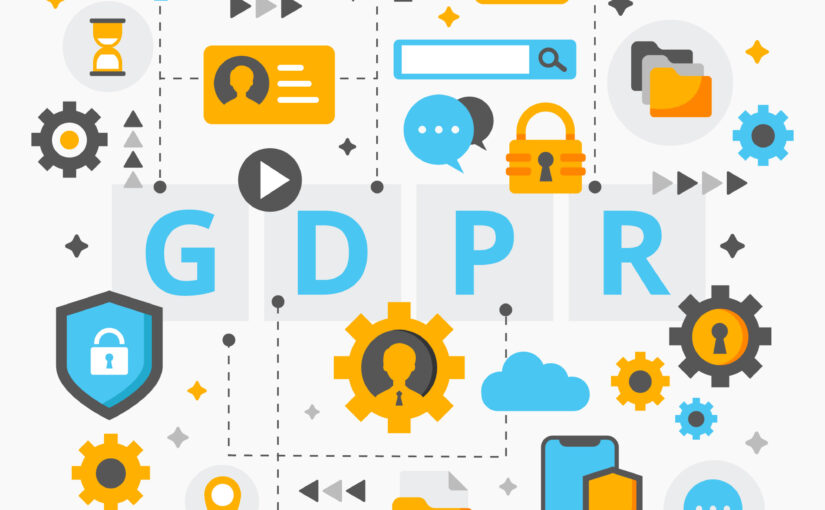Last Updated on 1 Nov 2024 by NS
5 Things Every Marketer Should Know About Compliance in the Post-GDPR Era
Since the General Data Protection Regulation (GDPR) came into effect in May 2018, the landscape of data privacy and protection has undergone significant changes, affecting organizations globally, not just within the European Union. This regulation has set a new standard for data privacy rights and has influenced similar laws worldwide. For marketers, understanding and adapting to these changes is crucial for maintaining compliance and building consumer trust. Here are five key aspects every marketer should know about compliance in the post-GDPR era.
1. Understanding GDPR and Its Global Influence
GDPR Overview: The GDPR is a comprehensive data protection regulation that aims to give individuals control over their personal data. It imposes strict rules on data collection, storage, processing, and transfer, with significant penalties for non-compliance.
- Global Influence: Although GDPR is an EU regulation, its effects are felt worldwide. Companies that operate in the EU or process data of EU citizens must comply, regardless of their location. This has led to the adoption of similar data protection laws in other regions, such as the California Consumer Privacy Act (CCPA) in the United States.
Q: Why should marketers outside the EU be concerned about GDPR?
- A: Even if your business is not based in the EU, if you collect or process data from EU citizens, GDPR applies. Non-compliance can lead to hefty fines and damage to your brand’s reputation. Moreover, as data protection laws evolve globally, adhering to GDPR standards can help prepare for compliance with other regulations.
2. Data Collection and Consent
Obtaining Consent: One of the cornerstone principles of GDPR is the requirement for explicit and informed consent from individuals before collecting their data. Marketers must ensure that consent is freely given, specific, informed, and unambiguous.
- Consent Practices: Use clear and straightforward language in consent requests. Avoid pre-ticked boxes and ensure that users have the option to withdraw consent easily at any time.
Q: How can marketers ensure they obtain proper consent under GDPR?
- A: Implement transparent consent forms with clear language explaining how data will be used. Regularly review and update consent mechanisms to ensure compliance. Additionally, maintain records of consent to demonstrate accountability.
3. Data Minimization and Security
Data Minimization: GDPR emphasizes the principle of data minimization, meaning that businesses should only collect data that is necessary for a specific purpose and retain it only as long as necessary.
- Data Security: Marketers must implement appropriate technical and organizational measures to protect personal data from unauthorized access, disclosure, or loss. This includes encryption, secure storage, and regular security audits.
Q: What is data minimization, and why is it important for marketers?
- A: Data minimization involves collecting only the data you need for a specific purpose and not retaining it longer than necessary. This practice reduces the risk of data breaches and non-compliance with GDPR, ensuring better protection of personal information.
4. Rights of Data Subjects
Data Subject Rights: GDPR grants individuals several rights concerning their data, including the right to access, rectify, erase, restrict processing, and portability of their data. Marketers must have processes in place to respond to these requests promptly.
- Responding to Requests: Establish a clear process for handling data subject requests, ensuring that responses are timely and comprehensive. Train staff to recognize and appropriately handle such requests.
Q: What should marketers do to respect the rights of data subjects under GDPR?
- A: Marketers should establish procedures for handling data subject requests and ensure that these processes are transparent and accessible. It’s also essential to educate employees about these rights and how to respond to requests within the regulatory time frames.
5. Compliance and Accountability
Compliance Programs: Marketers should integrate GDPR compliance into their overall data management and marketing strategies. This includes conducting regular data protection impact assessments (DPIAs), appointing a Data Protection Officer (DPO) if required, and staying updated on data protection developments.
- Accountability: GDPR requires businesses to demonstrate compliance actively. This means keeping detailed records of data processing activities, consent forms, and data protection measures.
Q: How can marketers demonstrate compliance with GDPR?
- A: Marketers can demonstrate compliance by maintaining thorough documentation of data processing activities, implementing robust data protection policies, conducting regular audits, and providing staff training. Appointing a Data Protection Officer (DPO) can also help manage compliance efforts.
Conclusion
The GDPR has reshaped the landscape of data privacy and has far-reaching implications for marketers worldwide. By understanding the key principles of data collection, security, data subject rights, and the importance of accountability, marketers can ensure compliance and build trust with their audience. As data protection laws continue to evolve globally, staying informed and proactive about compliance is more critical than ever. A trusted Digital Marketing Agency helps businesses reach new heights by developing and managing campaigns that increase visibility, engagement, and conversions across digital platforms.

